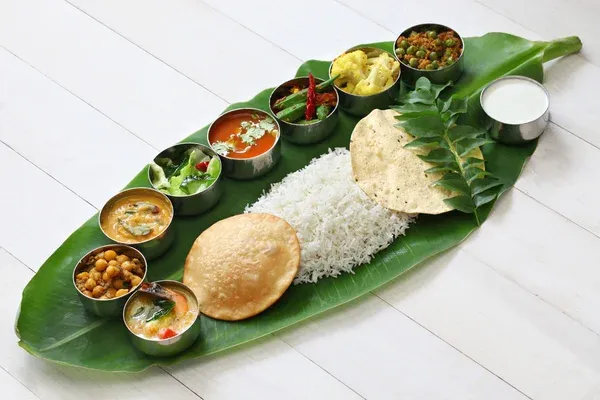Table of Contents
Indian cuisine is renowned for its rich flavors, vibrant colors, and diverse ingredients. Spanning a vast geography, Indian food varies significantly from one region to another, reflecting a blend of local traditions, climates, and available resources. Here are a few key aspects that highlight how Indian food culture is both different and healthy:
- Diversity of Ingredients: Indian meals often incorporate a wide array of vegetables, legumes, grains, and fruits. This variety ensures a balanced intake of essential nutrients, which is fundamental for maintaining health.
- Spices and Herbs: Spices such as turmeric, cumin, coriander, and ginger are staples in Indian cooking. These not only enhance flavor but also offer numerous health benefits. For example, turmeric has anti-inflammatory properties, while ginger aids digestion.
- Fermented Foods: Items like idli, dosa, and yogurt are common in Indian diets. Fermented foods are rich in probiotics, which promote a healthy gut microbiome and improve digestion.
- Balanced Meals: Traditional Indian meals often follow the principle of balance, incorporating carbohydrates, proteins, fats, vitamins, and minerals. Dishes like dal (lentil soup), sabzi (vegetable stir-fry), and roti (whole wheat flatbread) are typical components of a meal, ensuring a balanced diet.
Traditional Indian Food Culture:
The roots of Indian food culture are deeply embedded in its history and traditions. Ancient texts like the Vedas and Ayurveda highlight the importance of food in maintaining health and balance. Traditional Indian cuisine emphasizes seasonal ingredients and local produce, which are believed to be more nutritious and suitable for the body’s needs.
Festive Foods
Indian festivals are incomplete without special dishes that reflect the rich cultural heritage. For example:
- Diwali: Known for its sweets like ladoos, barfis, and halwa.
- Holi: Famous for gujiyas and thandai.
- Onam: Celebrated with a grand feast called Onam Sadhya, featuring numerous vegetarian dishes served on a banana leaf.
- Eating Practices : Traditional Indian eating practices also emphasize the importance of the manner in which food is consumed. Eating with hands is a common practice, believed to enhance the sensory experience of eating and aid in digestion.

Adopting Healthy Food Habits
Making the switch to healthier food habits can have a profound impact on your overall well-being. Here are some tips to get you started:
- Start with Small Changes: Begin by incorporating more whole foods into your diet, such as fresh fruits, vegetables, whole grains, and lean proteins. Gradually reduce your intake of processed foods and sugary snacks.
- Plan Your Meals: Take the time to plan your meals for the week. This helps ensure that you have a balanced diet and reduces the temptation to opt for unhealthy convenience foods.
- Cook at Home: Home-cooked meals are generally healthier because you have control over the ingredients and cooking methods. Experiment with new recipes and enjoy the process of preparing nutritious dishes.
- Stay Hydrated: Drinking plenty of water is crucial for maintaining good health. Aim to drink at least eight glasses of water a day, and limit the consumption of sugary drinks.
- Practice Mindful Eating: Pay attention to what you eat and how you eat. Avoid distractions like television or smartphones during meals. Take the time to savor each bite and listen to your body's hunger and fullness cues.
Indian food culture is not only diverse and flavorful but also packed with health benefits. By incorporating traditional practices and focusing on balanced, mindful eating, you can enjoy the rich culinary heritage of India while maintaining a healthy lifestyle. Embracing these habits can lead to better overall health and a deeper appreciation of the cultural significance of food.
